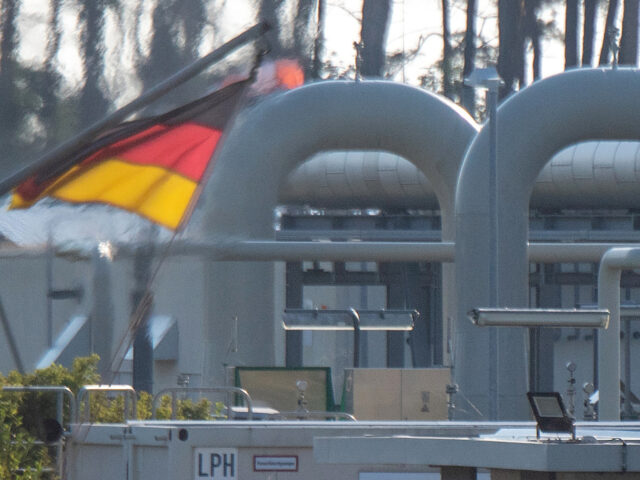Vladimir Putin’s Russia has once again halved Germany’s gas supply, a move that will further harm an already struggling EU economy.
Having only just seen the flow of gas from the Nord Stream 1 pipeline turned back on again after a nearly two-week maintenance period, Germany is once again facing a significant worsening of its already crippling gas crisis after Vladimir Putin’s government decided to once again half the amount of Russian gas it was supplying the EU state.
The EU had already been struggling with the previous cut, with authorities in Brussels struggling to get member states to agree to implement a 15 per cent cut in their own gas usage in the hopes of getting vulnerable states through the coming winter.
According to a report by Der Spiegel, however, things have now gone from bad to worse, with Russian state gas company Gazprom saying that it will now only allow the essential Nord Stream 1 pipeline operating between Germany and Russia to operate at a maximum of 33 million cubic meters a day, or 20 per cent of its maximum capacity, from Wednesday.
A spokesman for Moscow meanwhile said that, while the Kremlin was not interested in completely ending the supply of gas to Europe at the moment, things could change should the West keep pushing sanctions.
“Russia is a responsible gas supplier, and regardless of what anyone says in the European Commission, in European capitals, in the United States, Russia was, is, and will continue to be the country that largely guarantees Europe’s energy security,” Russian News Agency TASS reports Kremlin Press Secretary Dmitry Peskov as saying.
“If Europe continues on its path of totally reckless imposition of restrictions and sanctions that hit it, then the situation will be different,” he went on to warn.
The latest cut in Europe’s supply of gas has already had an effect on the European markets, with the German DAX stock market closing 0.33 percent lower on Monday.
Meanwhile, according to a report by Tagesschau, Germany’s economics and climate change minister, Robert Habeck, warned that the cut has left Germany in a “serious situation”, and that the supply of gas to industries in the country is in danger, though he hopes steps taken by authorities will be sufficient to avoid any loss of supply for such businesses.
Habeck went on to emphasise that Germany should still be able to source gas from the Netherlands and Norway, though the extent of this supply appears to be up in the air considering current disunity within the European Union in regards to the gas situation.
For example, many nations within the bloc are revolting against a push by the EU to force them to cut their gas usage by 15 per cent, with Spain in Portugal in particular voicing displeasure over the plan.
This disunity is likely to be made even worse should a report by the Irish Times on the bloc-wide curb turn out to be true, with an article by the paper published on Tuesday claiming that Ireland will be completely exempted from the obligation to save gas.
While Habeck and his fellow ministers have been left firefighting by the gas crisis, it was not like his nation had not previously been warned about the crisis, with former U.S. President Donald Trump telling German authorities back in 2018 that their reliance on Russian gas was endangering their own security, as well as the security of their allies.
The minister appears to have since recognised the wisdom of such a warning, having said that it is hard to understand how the country had been so “blind” to the danger of leaving its energy supply in the hands of Russia.
“Energy policy is always power policy, is always interest policy, is therefore always security policy,” he said. “And if you look back, you almost can’t understand how we could be so blind to overlook that.”
“We knew, or we could have known, that it was not only stupid to place all our security policy cards on just one country, but that it also wasn’t a smart idea to put them on that particular country,” he continued. “We have to acknowledge that we acted wrongly in the past.”
One report has since indicated that the country could experience around a €200 billion contraction in its economy within six months in the event it totally loses access to Russian gas, with the threat of recession extending to the rest of the Eurozone.

COMMENTS
Please let us know if you're having issues with commenting.